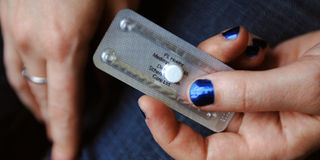End the stigma on morning-after pills

What you need to know:
- I suppose it was something to do with his partner. He asked if flagyl (metronidazole) can prevent pregnancy—and my answer was a big NO.
- Instead, I asked him if he was aware about the morning-after- pills. To my surprise, the terminology was new to him, despite the fact the pills are popular contraceptives.
I once received a text message from my friend who lives upcountry. He asked for my opinion as a medical doctor.
I suppose it was something to do with his partner. He asked if flagyl (metronidazole) can prevent pregnancy—and my answer was a big NO.
Instead, I asked him if he was aware about the morning-after- pills. To my surprise, the terminology was new to him, despite the fact the pills are popular contraceptives.
I have been approached several times by some young women, most of them unmarried (with one case of a married woman) who are desperate to get rid of their pregnancy.
When I asked them why they didn’t use one of the methods of contraception to prevent that kind of outcome, I often get mixed reactions.
For young unmarried women, they usually shy away from using regular form of contraception like oral contraceptive pills, as they might be labeled as deviant by the society which does not encourage sex before marriage.
Since the pill has to be taken every day, so it’s easy to get noticed by members of the family, or in case of injectable hormonal contraceptive, one has to go for it every three months at a health facility to receive a shot.
Most of these women resort to condoms which are usually met with fierce resistance from their male counterparts.
So most of them take that risk of having unprotected sex while praying earnestly for conception not to take place.
Most women and girls of reproductive age cannot convince their men to wear condoms. They are involved in casual sex but without plans to be mothers. But they aren’t aware that emergency contraception can be of great help.
What are they
Accidents happen that’s why we have emergency contraception. Emergency contraception is a form of birth control that prevents pregnancy after sex, which is why it is sometimes called “the morning after pill.”
It can prevent most pregnancies when taken after intercourse.
Emergency contraception pill can be used in the first 3 days (72 hours) after sexual intercourse. It is intended for use following unprotected sex, contraceptive failure such as missing dose or condom misuse such as breakage or slippage.
Also can be used in situations such as rape or coerced unprotected sex.
One example is levonorgestrel, which can be taken once orally as a single dose or can be taken in two doses, each 12 hours apart.
You don’t need a prescription from the doctor to purchase the morning after pills from your local pharmacy, it is sold over the counter (OTC).
In case you are pregnant and you don’t know yet, emergency contraception cannot interrupt an established pregnancy or harm a developing embryo.
Emergency contraception pills are very safe and do not cause abortion or harm future fertility.
However, emergency contraception is not protective against HIV or sexually transmitted diseases (only condoms do).
Emergency contraceptive pills are recommended for occasional use only after unprotected sex and are not recommended for regular use as an ongoing contraceptive method.
Frequent use of emergency contraception can result in increased side effects, such as menstrual irregularities, although their repeated use poses no known health risks.
The author is a Medical Officer at the Ministry of Health




